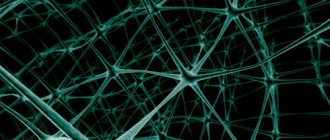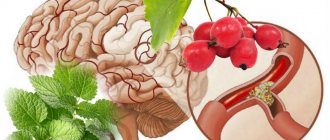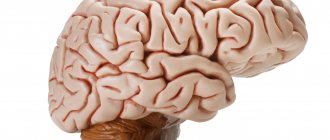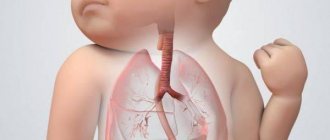Diseases of the nervous system are usually chronic. In addition to discomfort, these ailments significantly reduce the quality of life and the condition of the entire body as a whole. This category of patients requires constant monitoring and annual examination.
It is best to treat diseases of the nervous system in sanatoriums in the Moscow region. Such health resorts have everything necessary for the recovery and pleasant pastime of patients with nervous disorders.
The treatment plan, climate zone, and time of year for such patients are selected individually. When choosing a sanatorium, you should take into account the patient’s weather sensitivity and refrain from purchasing a voucher during the season of sharp temperature fluctuations.
Symptoms
Symptoms of a nervous disorder differ in each situation. Sometimes the symptoms are so erased that only a specialist with extensive experience working with people can make a diagnosis.
Signs of a nervous disorder:
- getting up in the morning in a bad mood for a long time
- decreased self-esteem, which was not noted before, lack of confidence in one’s own strengths and qualifications
- self-oppression, asceticism, strict diets
- intense perception of criticism and comments
- sociopathy, desire not to communicate with anyone, isolation even from loved ones
- restlessness with sweaty palms and trembling
- apathetic state, reluctance to work, engage in hobbies, etc.
- sleep problems
- frequent headaches
- obsessive fears for yourself and your family
Features of the central nervous system in infants
The formation of internal organs and systems in children occurs within several months after birth. As soon as the baby is born, he clearly exhibits reflexes that are passed on to him from his parents and persist throughout his life. After some time, the body activates the production of special enzymes responsible for the regulation of hormones necessary for the normal functioning of the digestive system.
Due to the influence of certain factors, the process of formation of the central nervous system often fails, resulting in various deviations. They are easily corrected if therapy is carried out in a timely manner. However, there are diseases that are difficult to treat. For example, when diagnosing perinatal syndrome, even long-term medication use rarely leads to positive results.
Causes
A number of factors can seriously affect our nervous system, causing pathologies of nerve cells and failure of their functioning. First of all, a nervous disorder can be triggered by hypoxia, that is, a lack of such an important element as oxygen in the body. The cells of the nervous system and brain are affected. If a person has chronic hypoxia, this will negatively affect the entire body.
It is important to regularly ventilate the room in which you are staying. Walk outdoors more often, preferably as far as possible from highways and busy roads. You will become calmer and more balanced, your appetite and sleep will return to normal.
Fluctuations in body temperature negatively affect the nervous system. If you do not reduce the high temperature for a long time, the metabolic rate, accordingly, accelerates. Nerve cells become excited. And, since they cannot be constantly excited for a very long time, then the stage of their inhibition begins. Energy resources are becoming increasingly scarce.
Nervous disorder can be caused by the influence of a toxic factor. There are certain poisons that depress the nervous system. They are called neurotropic.
Metabolic disorders in children, adolescents and adults can also cause nervous disorders. Mainly, lesions of the central part are recorded. The brain suffers greatly as a result of hypoglycemia. It’s not for nothing that we become more active and “refresh” our brains when we eat a piece of chocolate. It contains glucose. If the level of glucose in the blood is too low (this does not mean that you constantly need to recharge with sugar!), then the brain cells stop functioning quite actively. In extreme cases, the cerebral cortex is even irreversibly damaged, which is very, very dangerous.
Aggressive factors that can cause nervous breakdown:
- electromagnetic field
- electricity
- systematic vibrations
Some people are born with a predisposition to nervous disorders. This is the action of the so-called genetic factor. Some parts of the nervous system may not receive sufficient development. The consequence is, for example, phenylketonuria. Toxins begin to accumulate in the body in abnormally large quantities, which negatively affects the nervous system.
Among the causes are tumors. They can be either benign or malignant. What matters in this case is their size and location. The tumor can put pressure on a certain nerve center, causing it to malfunction. The tumor can also cause the death of cells in the nervous system. Also, some tumors during the growth process block the blood flow to the brain, which greatly increases the risk of ischemia. The person is likely to have a stroke.
Inflammation in the nervous system also causes nervous disorders. It is necessary to take into account the localization of the inflamed area. If inflammation of the meninges occurs, cerebrospinal fluid is not formed in sufficient quantities, and its outflow is disrupted. The consequence of these processes is impaired blood circulation in the brain and increased pressure inside the skull, which can lead to death. It is important to identify and treat this condition early.
Profitable offer
Ski tourism
See all
Republic of Belarus
See all
Sochi
See all
The first one is called “classical”.
Includes a standard list, which often involves a one-time doctor’s appointment, as well as diagnostics. The latter, by the way, includes a blood test and an ECG. In the future, the complex turns into a purely recreational one. These include air baths, climatic exposure, a swimming pool, exercises in the gym under the watchful supervision of a professional instructor, and personally designed dietary nutrition. The second program is “special”. And it includes any services that are ordered additionally. That is, listed in the general list.
"Alushtinsky", Alushta
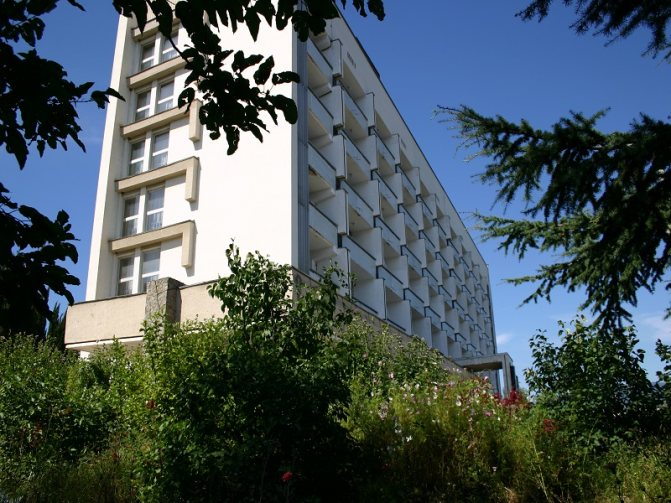
Under the simple name lies a completely serious company, which is more focused on the recovery of patients, the medical nature of the holiday, and not its resort factor. They actively work here in the field of chronic and temporary diseases of the respiratory tract, disorders of the periphery of the nervous system, functional ailments, and so on. The spectrum is wide, but neuralgia is invariably in the spotlight.
Separately, I would like to say about the magnetic complex – “Multimag”. This is a modern device that is actively used in the center, having a positive effect on many aspects. In particular, the fight against disorders in the areas of nerves, heart, blood vessels, urinary system, endocrine and so on.
"Ai-Petri", Yalta
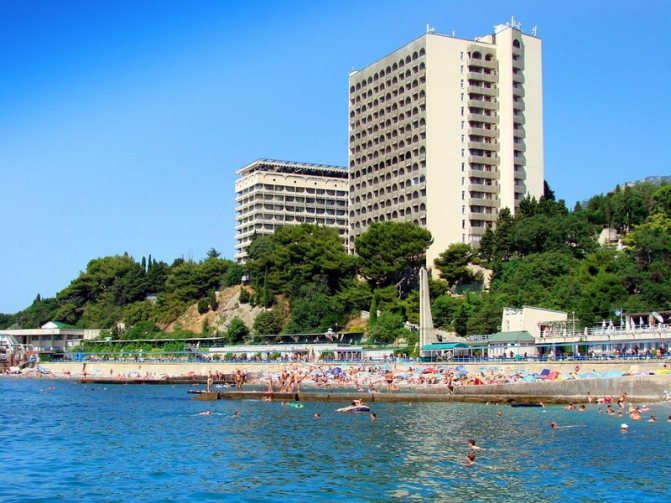
It is worth saying that despite the broad profile of the establishment in principle, the project does not focus too much specifically on the industry indicated in the review. Only a few procedures are used to treat nerve-related ailments. Specifically, healing with mineral waters, hydrotherapy, which is called here by the colorful name “underwater shower.” And also a specific capsule with infrared radiation.
To summarize, it can be noted that not only sanatoriums in the Krasnodar region with treatment of the nervous system can be considered truly high-quality examples in this area. Now many other regions have entered the leadership arena. And over time, their number will only grow. If your eyes are wide open from the abundance of options, the travel agency “Let’s go and fly” will help you make the right choice and organize a good, but inexpensive vacation.
Neuroses
There are a variety of disorders of the human nervous system. But among them the most cases are neuroses. This is a psychoneurological disease that occurs as a result of a disorder of the nervous system, and can be of several types.
The first type of neurosis is neurasthenia.
It is characterized by general depression of the nervous system, which is a consequence of psychological trauma or stressful situations. Main manifestation: increased nervous excitability. Symptoms:
- weight gain or significant loss
- heart rhythm disturbance
- lack of sleep at night
- fatigue for no reason
- excessive aggressiveness
The second type of neurosis is obsessive-compulsive disorder.
Before the onset of obsessive states, a person is diagnosed with long-term depression. A person begins to fear something (his own death, injury to children, dismissal of retired parents from work, falling ceiling in an apartment, etc.). This condition should be differentiated from delirium. With delirium, a person does not understand that his fears have no serious basis, but with obsessions, the opposite is true. The person is under nervous tension, which leads to serious complications. Phobias are also considered obsessive states, as are bad habits that a person cannot get rid of.
The third type of neurosis is hysteria.
The person becomes impulsive. His personality is characterized by suggestibility and concentration on his own ego. The patient's actions are aimed at the public. Hysterics and fainting only occur in front of witnesses. Read more about hysteria here. Accompanying symptoms:
- disorders of the heart and blood vessels
- body weight change
- nausea and/or vomiting
- low appetite
- slight increase in body temperature
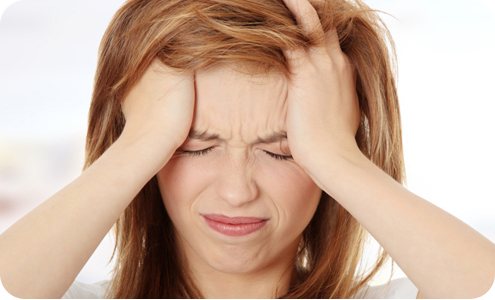
Vegetovascular dystonia
Vegetovascular dystonia (VSD) is a fairly common diagnosis. This is a disorder of the nervous system that can be diagnosed in both adults and children. autonomic nervous system needs to function properly because it regulates:
- how often does our heart beat
- what is our body temperature
- what kind of metabolism
- How will the pressure change?
Therefore, VSD manifests itself with symptoms similar to those of psychological, neurological and cardiac diseases. The examination must include a variety of methods, and the diagnosis requires review by an experienced, highly qualified specialist.
Symptoms of vegetative-vascular dystotonia:
- breathing disorders:
- increased breathing or
- labored breathing
- worsening of the above symptoms during physical activity
- dysfunction of the heart and blood vessels
- periodic increase in blood pressure or
- periodic hypotension
- bradycardia
- tachycardia
- pain in the area of the heart
- disorders of the digestive tract
- lack of appetite
- nausea
- heartburn
- belching
- accumulation of gases in the intestines
- temperature violations
- cold hands and feet
- increased temperature caused by even minor stress
- sweating in large quantities or
- chills
- disturbances in the emotional sphere
- frequent crying or on the verge of crying
- increased irritability
- worries
- phobias of various kinds
- skin symptoms
- skin turns pale
- under emotional stress, the skin becomes covered with red/scarlet spots
How does an appointment with a neurologist go - what questions does he ask?
During the initial consultation, the neurologist talks with the patient and collects anamnesis. Performs an external examination of the patient regarding the symmetry of the shoulders, limbs, posture, motor activity, and tremor. The doctor will test your muscle strength by shaking your hand. Determines the presence of reflexes - skin, periosteal, pupillary, tendon, meningeal. Tests pressure sensation by placing objects of varying weights on the skin. Then it examines coordination, a sense of localization (assessment of spatial position). Be sure to check the functions of the cerebellum; heel-knee and pointing tests are performed. Based on the results of the examination and tests, the neurologist may prescribe additional examinations (MRI, CT scan of the head, ultrasound of the spine, blood tests, urine tests).
Traditional treatment for nervous disorders
Milk with garlic
In 200-250 ml of milk (warmed) you need to put crushed or finely chopped one clove of garlic. Should be taken daily 30 minutes before your morning meal. This remedy relieves irritability, relieves even severe headaches, and helps with dizziness. If changes in the nervous system are provoked by a person’s age, this folk remedy is also relevant.
Milk and valerian root
The two components indicated in the name of the recipe must be mixed in a one to one ratio. This mixture should be consumed in a dosage of 0.5 cups 3 times a day. The maximum effect will be if this remedy is used for treatment in combination with psychotherapeutic sessions.
Milk baths
If you do not yet have neurosis as such, but you feel that you will soon have a nervous breakdown, then prepare a warm bath. You need to add two or three glasses of milk to your bath. The duration of the bath should be 10-15 minutes, or 20. This remedy helps with stress. After taking a bath, it is important to avoid heavy foods. You can eat dairy products and/or porridge without oil.
Milk and strawberries
If the cause of neurosis lies in menopause, it is worth combining wild strawberry juice with milk. The proportion can be any. You can drink in any quantity, it helps relieve stress and fatigue.
Treatment of nervous excitement
Hawthorn
- Components:
- motherwort herb 3 tbsp.
- hawthorn flowers 3 tbsp.
- chamomile flowers 1 tbsp.
- cudweed grass 3 tbsp.
From the resulting mixture, take 1 tbsp and pour 250 ml. boiling water, then leave for 8 hours and filter. You need to drink 0.5 cups 3 times a day, 60 minutes after meals. Also relevant for heart diseases.
- Components:
- hawthorn flowers 2 tsp.
- hawthorn fruits 3 tsp.
- St. John's wort herb 3 tsp.
- valerian root 3 tsp.
- yarrow herb 3 tsp.
After mixing everything, take 1 tbsp. mixture and pour traditionally boiling water. You need to leave it for 5-6 hours and then strain. Take a quarter glass four times a day, half an hour before meals.
Oats for nervous disorders
Few people know that oats help strengthen the nervous system. You need to grind the oat grains (without preliminary cleaning) in a coffee grinder, then pour them into a thermos, pouring boiling water on top (for 1 tablespoon of ground oats you need 250 ml of boiling water). Next, let this mixture brew for half a day, filter and drink without any specific dosage.
The following recipe: wash and dry the oats, and then also grind them using a coffee grinder. If you don't have a coffee grinder, you can use a meat grinder. For 2 tbsp. oats need 500 ml of boiling water. Let the mixture brew for three or four hours. You need to take 100-120 ml per day.
For nervous exhaustion, you can use green oat juice. To do this, before flowering, you need to take that part of the plant that grows above the ground and put it in a juicer. You can also use a meat grinder to extract juice. Drink 100-120 ml two or three times a day before meals. The course should be 2-3 weeks.
There are many recipes for treating nervous disorders that are difficult to describe in one article. But remember that it is best to consult a doctor for treatment. Because the same symptoms can indicate different diseases. And in many cases, doctors prescribe additional studies to clarify the diagnosis and prescribe adequate treatment. Take care of your health!
How to choose the right neurologist
Choosing a neurologist should begin with checking the license; you need to find out the doctor’s education and length of practice. The best option would be a professor, candidate of sciences and a doctor of the highest category who has been practicing for more than 15 years. Most doctors undergo additional advanced training courses in Russia and abroad. Treatment tactics for individual patients are selected individually, according to examination results. A good doctor will not prescribe unnecessary procedures; this measure is justified by respect for patients and maintaining the reputation of the best clinics.
